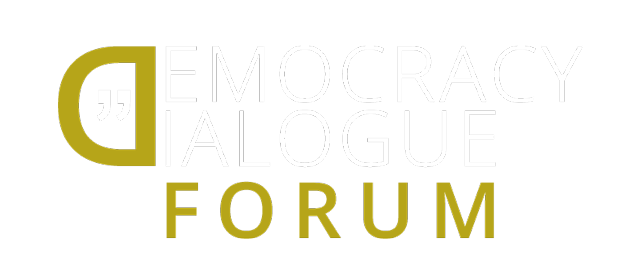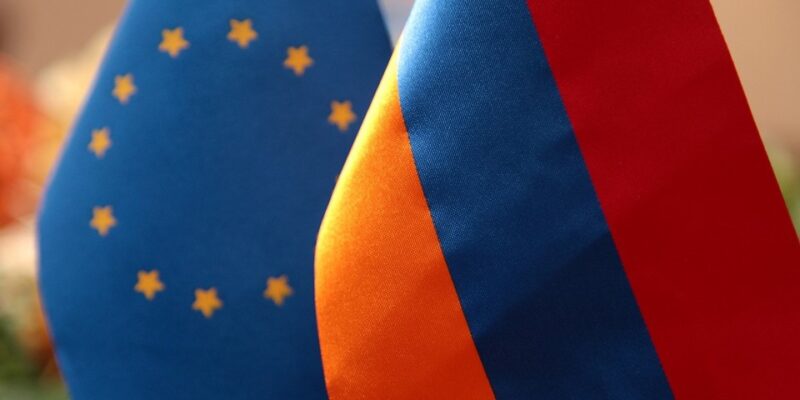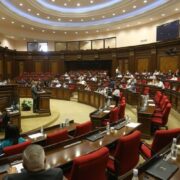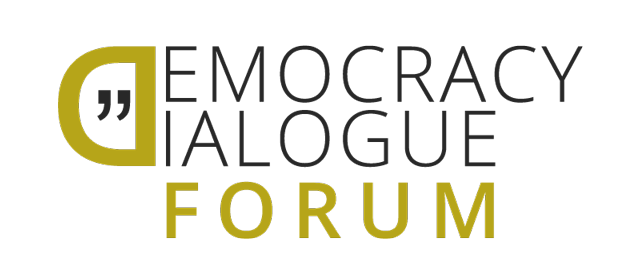Understanding Europe: Motives, Positions & Narratives of the EU
The second Nagorno-Karabakh war has prompted reflection on foreign and security policy. Besides the 44-day war, the blockade of Nagorno-Karabakh and especially the de facto capitulation of the Republic of Artsakh force Armenians to rethink their foreign and security policy. While it became obvious, that Russian and Armenian interests are different and that Russia is not willing and not able to resolve the Karabakh-issue, it remains still unclear for many Armenians what the role of the European Union (EU) is. The search for new partners in Armenia is often based on ideological grounds rather than factual knowledge of neighboring countries. In Armenian public discourse, the West, including the European Union (EU), is often generalized and portrayed as a homogeneous entity, despite the reality that it is a diverse and complex organization.
In recent times – both before and after September 19th – influential EU Parliament members, notably the chairs of the Defense Subcommittee and Foreign Policy Committee, have made noteworthy statements expressing concerns about Azerbaijan’s violations. Furthermore, the EU Parliament has officially condemned Azerbaijan’s blockade and the recent aggression on multiple occasions, including resolutions that were passed in December 2022/January 2023. While these resolutions were positively perceived by both the Armenian civil society and government, they unfortunately did not result in tangible actions being taken. Furthermore, the EU Commission plans doubling the gas imports from Azerbaijan. This can be attributed to the fact that the EU is a heterogeneous entity, with different positions among member states and between its own institutions. The distribution of competences within the EU further complicates determining its foreign policy position and often leads to conflicting positions within the organization itself.
In addition to the 27 states and thus 27 individual foreign policy positions, the EU Commission President, the President of the European Council, the High Representative and the chairpersons of the foreign policy and security policy committees of the EU Parliament are important players when it comes to foreign and security policy.
From State Condemnations to Appeasement: 27 States, 27 Positions
The recent political stances of individual EU member states and the EU High Representative – both within the framework of the UN Security Council and the EU itself – show the heterogeneity between states. While most of the reactions by European states were predictable, some of the statements (Germany) were surprising.
While French officials are known for having pro-Armenian stances, both by statements and clear actions such as initiating resolutions and providing humanitarian aid, Hungary is known for blocking every single European resolution on Azerbaijan or Turkey. German officials on the other side have maintained a neutral, appeasing, and sometimes even pro-Azerbaijani stance for a considerable period. Nevertheless, the German rhetoric has changed during the last month. The first perspective change was noted, when Germany urged Azerbaijan to reopen the Lachin corridor and during the speech of German foreign minister during the last UN Security Council Why are the foreign political stances of neighboring EU countries different on the South Caucasus? Their stance on Armenia, Turkey, Azerbaijan, Nagorno-Karabakh, and the genocide issue is influenced by several factors, including economic relations, diasporas, territorial problems, and historical relations. It is often very difficult to talk in a dichotomous way about whether a state is pro-Armenian, pro-Turkish or pro-Azerbaijani.
Spain opposes the right to self-determination due to its own internal issues with the Catalans and Basques. In Germany, for example, the strong economic ties with Turkey, the large Turkish diaspora and Azerbaijani caviar diplomacy play an important role. Taking into account the traditionally appeasing role of Germany, the strong ties with Turkey, the German rhetoric shift during the last days seems surprising. However, when it comes to Germany, we should remain sober and acknowledge and not become illusionist. The German political landscape will remain pro-Turkish and the role of the “Green” foreign minister will play a secondary role. Thus, while we can expect more pro-Armenian statements from Germany on rhetoric level, Germany will continue its appeasing policy when it comes to clear actions. Hungary’s financial relations with Azerbaijan, ethnic reasons, and Turkic Council observer status also shape its stance. Although Hungary is known for blocking statements condemning Azerbaijan or Turkey, we should understand, that Hungary is not the only member state with a more pro-Azerbaijani policy. Italy, on the other hand, prioritizes strong ties with the Turkish and Azerbaijani economies, particularly in the energy sector. But why is only Hungary blocking these kind of resolutions and statements? Due to unanimity principle in some EU institutions, there is no necessity for other states to vote against.
On the other hand, states such as France, Greece and Cyprus have a different stance. However, even when it comes to these states, France and Cyprus are traditionally more pro-Armenian than Greece. One of the reasons is, that Greece although being pro-Armenian (both in military cooperation, statements) as well, drives a more sensitive policy towards Turkey. Acknowledging the fact of tense relations between Turkey and Greece, Greece in some cases is more cautious when it comes to the Nagorno-Karabakh conflict. Cyprus in contrast together with France have a tougher position on Nagorno-Karabakh too. The reasons why these states are more pro-Armenian are multifaceted: Historical, military and political hostility with Turkey and the good relations with Armenia. In case of France, we should also take into account French geopolitical interests in North Africa, Middle East and the Mediterranean. This leads to conflicting geopolitical interests between France and Turkey.
These are only a few examples to illustrate that the interests within the EU are very different and a clear, foreign policy line is often very difficult to understand. Thus, although the EU has abstract ideas of a foreign policy, the political approaches of the individual states differ fundamentally.
Gas Deal, Condemnations and the EU Mission: EU Institutions and their Interests
The European Parliament in December 2022 and January 2023 urged Azerbaijan to immediately reopen the Lachin corridor, highlighting the violation of the Russian-brokered ceasefire that stopped the 2020 war. After the 2023 act of aggression carried out by Azerbaijan, the European Parliament condemned the Azerbaijani aggression. A group of members of parliament event initiated sanctions against Azerbaijan. These resolutions, along with recent statements from Nathalie Loiseau, Chair of the Subcommittee on Security and Defense of the European Parliament Committee on Foreign Affairs, have given hope to Armenian civil society. However, Loiseau expressed disappointment on Twitter that the President of the European Council did not heed the European Parliament’s call regarding Nagorno-Karabakh. One of the reasons for the discrepancy between EU institutions is the level of influence exerted by member states. The European Council operates as an intergovernmental organization, where member states have strong influence, while the European Commission and European Parliament as supranational organizations are more independent in their decision-making.
In the case of the previously mentioned parliament, the EU Parliament often plays a rather symbolic role in foreign policy. This can be attributed to the distribution of competences within the EU on the one hand and the strong heterogeneity on the other. Another reason is the traditionally weak parliamentarian foreign policy in the EU.
In contrast, the European Council, consisting of heads of state or government, has a more ambiguous position: While the members of the EU Parliament criticize the European Council for ignoring the resolutions, the European Council, led by Charles Michel aims to play a mediating role in the Nagorno-Karabakh conflict and to increase its influence in the region. Negotiations in Prague resulted in the recognition of administrative borders of the two Caucasus states, establishing a foundation for the EU observer mission. The results of the Prague negotiations are one of the few decisions making a possible Azerbaijani attack on Syunik illegal and not legit. This differs from Russia’s stance of not recognizing any borders, even after the 2022 attacks, leading to ongoing disputes. The European Council’s more balanced stance can be attributed to France’s greater influence in the institution compared to the European Commission and the Council’s focus on pragmatic solutions with a strong political emphasis on long-term issues.
On the other hand, Ursula von der Leyen, President of the European Commission, signed a gas deal with Azerbaijan in mid-2022 and described President Aliyev as a reliable and trustworthy partner. Even more, plans about doubling the gas imports from Azerbaijan were made after the de facto capitulation of Republic of Artsakh, thus contradicting the stance of the EU Parliament. It primarily stems from the Commission’s focus on general short- and middle-term EU interests, particularly economic (energy dependence) and political issues, as well as the quasi-executive nature of the Commission. The influence of the member states in the European Commission is quite low making the Commission to a classical supranational organization.
Dealing With the EU in a Differentiated Way
Taking into account Armenia’s current foreign policy shift, it is important for Armenia to have a better understanding of the European Union and thus to recognize the EU’s unique nature as a sui generis institution. It cannot be compared to the Soviet Union or strongly federal states like the US. Analyzing EU foreign policy requires taking into account internal factors and learning to differentiate between member states. While we can talk about general foreign policy visions – such as a stronger political presence in the Caucasus, increased investment, the internationalization of the Nagorno-Karabakh conflict, the spread of European norms – we have to take into account the internal European factors and learn to differentiate.
Armenia should strengthen bilateral relations with individual EU countries in addition to its multilateral relations. While multilateral relations may improve the relations in the fields of economy, education or technology, bilateral relations with individual states may help to improve military relations. While single EU decisions will help to protect Armenia’s sovereignty legally and politically, the EU Commission will still continue its trade with Azerbaijan. By understanding the motives behind individual decisions and engaging in targeted cooperation, Armenia can effectively work with the EU as a partner.






Comments